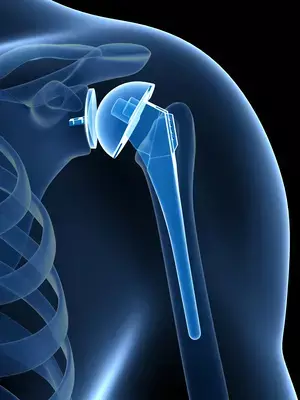- Home
- Medical news & Guidelines
- Anesthesiology
- Cardiology and CTVS
- Critical Care
- Dentistry
- Dermatology
- Diabetes and Endocrinology
- ENT
- Gastroenterology
- Medicine
- Nephrology
- Neurology
- Obstretics-Gynaecology
- Oncology
- Ophthalmology
- Orthopaedics
- Pediatrics-Neonatology
- Psychiatry
- Pulmonology
- Radiology
- Surgery
- Urology
- Laboratory Medicine
- Diet
- Nursing
- Paramedical
- Physiotherapy
- Health news
- Fact Check
- Bone Health Fact Check
- Brain Health Fact Check
- Cancer Related Fact Check
- Child Care Fact Check
- Dental and oral health fact check
- Diabetes and metabolic health fact check
- Diet and Nutrition Fact Check
- Eye and ENT Care Fact Check
- Fitness fact check
- Gut health fact check
- Heart health fact check
- Kidney health fact check
- Medical education fact check
- Men's health fact check
- Respiratory fact check
- Skin and hair care fact check
- Vaccine and Immunization fact check
- Women's health fact check
- AYUSH
- State News
- Andaman and Nicobar Islands
- Andhra Pradesh
- Arunachal Pradesh
- Assam
- Bihar
- Chandigarh
- Chattisgarh
- Dadra and Nagar Haveli
- Daman and Diu
- Delhi
- Goa
- Gujarat
- Haryana
- Himachal Pradesh
- Jammu & Kashmir
- Jharkhand
- Karnataka
- Kerala
- Ladakh
- Lakshadweep
- Madhya Pradesh
- Maharashtra
- Manipur
- Meghalaya
- Mizoram
- Nagaland
- Odisha
- Puducherry
- Punjab
- Rajasthan
- Sikkim
- Tamil Nadu
- Telangana
- Tripura
- Uttar Pradesh
- Uttrakhand
- West Bengal
- Medical Education
- Industry
Vancomycin Addition to Cefazolin Shows No Superiority in Preventing Surgical-Site Infections in Arthroplasty

In a recent multicenter, double-blind, placebo-controlled trial, researchers investigated the addition of vancomycin to beta-lactam prophylaxis in arthroplasty procedures. The study's primary conclusion is that the addition of vancomycin to cefazolin prophylaxis does not demonstrate superiority over a placebo in preventing surgical-site infections in arthroplasty procedures among patients without known MRSA colonization.
This study was published in The New England Journal Of Medicine by Trisha Peel and colleagues. The study aimed to determine whether the addition of vancomycin, a potent antibiotic, to the standard cefazolin prophylaxis regimen would reduce the occurrence of surgical-site infections.
The study enrolled 4,239 adult patients who were undergoing arthroplasty procedures, including knee, hip, and shoulder arthroplasty. The patients did not have known methicillin-resistant Staphylococcus aureus (MRSA) colonization. They were randomly assigned to receive either 1.5 grams of vancomycin or a normal saline placebo in addition to cefazolin prophylaxis.
Key Findings:
- Surgical-Site Infections: Among the 4,113 patients included in the modified intention-to-treat population, surgical-site infections occurred in 4.5% of the patients who received vancomycin and 3.5% of the patients who received the placebo. The relative risk was 1.28, with a 95% confidence interval (CI) of 0.94 to 1.73, suggesting no statistically significant difference between the two groups (p=0.11).
- Subgroup Analysis: When looking at specific arthroplasty procedures, it was observed that the addition of vancomycin was associated with a higher rate of surgical-site infections in patients undergoing knee arthroplasty (5.7% in the vancomycin group compared to 3.7% in the placebo group). However, there was no significant difference in the rates of surgical-site infections for patients undergoing hip arthroplasty.
- Adverse Events: Adverse events occurred in 1.7% of patients in both the vancomycin and placebo groups. Notably, hypersensitivity reactions were more common in the vancomycin group (1.2% vs. 0.5% in the placebo group), with a relative risk of 2.20. On the other hand, acute kidney injury was less frequent in the vancomycin group (2.1% vs. 3.6% in the placebo group), with a relative risk of 0.57.
While the results showed a trend towards increased surgical-site infections in patients undergoing knee arthroplasty when vancomycin was used, this trend was not statistically significant. Additionally, the study highlighted the occurrence of hypersensitivity reactions and acute kidney injury in some patients receiving vancomycin.
These findings suggest that the routine addition of vancomycin to cefazolin prophylaxis in arthroplasty may not be necessary for patients without known MRSA colonization. However, further research may be needed to investigate the potential benefits in specific subgroups or in cases where MRSA colonization is present.
Reference:
Peel, T. N., Astbury, S., Cheng, A. C., Paterson, D. L., Buising, K. L., Spelman, T., Tran-Duy, A., Adie, S., Boyce, G., McDougall, C., Molnar, R., Mulford, J., Rehfisch, P., Solomon, M., Crawford, R., Harris-Brown, T., Roney, J., Wisniewski, J., & de Steiger, R. Trial of vancomycin and cefazolin as surgical prophylaxis in arthroplasty. The New England Journal of Medicine,2023;389(16):1488–1498. https://doi.org/10.1056/nejmoa2301401
Dr Riya Dave has completed dentistry from Gujarat University in 2022. She is a dentist and accomplished medical and scientific writer known for her commitment to bridging the gap between clinical expertise and accessible healthcare information. She has been actively involved in writing blogs related to health and wellness.
Dr Kamal Kant Kohli-MBBS, DTCD- a chest specialist with more than 30 years of practice and a flair for writing clinical articles, Dr Kamal Kant Kohli joined Medical Dialogues as a Chief Editor of Medical News. Besides writing articles, as an editor, he proofreads and verifies all the medical content published on Medical Dialogues including those coming from journals, studies,medical conferences,guidelines etc. Email: drkohli@medicaldialogues.in. Contact no. 011-43720751


